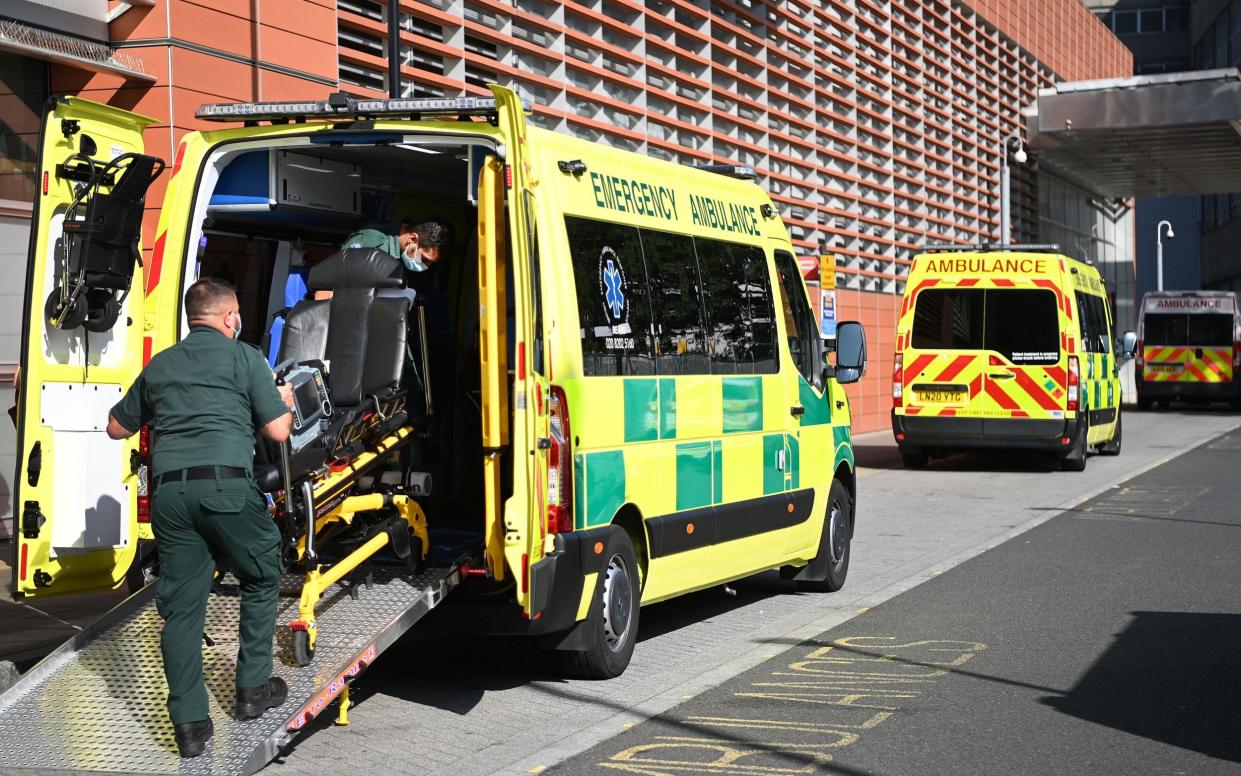Police officers called in to drive ambulances as NHS strain mounts

Up to 70 serving police officers have been drafted in to drive ambulances in London amid the growing crisis in the health service, The Telegraph can reveal.
The officers first volunteered to temporarily help out the London Ambulance Service in January as the surge in coronavirus hospital admissions put unprecedented pressure on paramedics.
As the strain on the NHS eased in the spring, the officers were able to return to their crimefighting duties at Scotland Yard.
However, a huge increase in demand in the NHS in recent weeks has led to the officers once again being called back behind the wheel.
Despite the number of Covid-19 hospitalisations falling, the past three months have been among the top five busiest on record for 999 calls taken.
Demand began to rise in June as restrictions were lifted and people began to go out and about more, leading to an increase in emergency incidents.
A large number of paramedics were also forced to self isolate after being pinged during the summer.
The police officer volunteers have been joined by members of the London Fire Brigade who are also helping out their blue light colleagues.
Dame Cressida Dick, the Commissioner of the Metropolitan Police, revealed details of the collaboration when she told colleagues at the recent Police Superintendents’ Association conference: “Right now, I have another 70 officers driving London’s ambulances because they are in such severe difficulties.”
The arrangement, which is part of the civil emergency contingency plan, was first initiated in January when Sadiq Khan, the Mayor of London, declared a major incident.
The officers, who were already qualified to drive larger vehicles, were given a day of training in how to operate ambulances.
While they were also trained in first aid, they were not required to give any medical care to patients.
Crisis growing nationwide
The London Ambulance Service is not the only one facing pressure, with warnings that there is a growing crisis nationally.
In Scotland, Nicola Sturgeon, the First Minister, has asked the Army for help, with reports that she is seeking 100 servicemen and women to support paramedics.
The move comes after a pensioner died when it took 40 hours for an ambulance to arrive.
In Shropshire, a cancer patient with breathing difficulties died while waiting eight hours for an ambulance to turn up.
The man was found dead by ambulance crews at his home, sitting in a chair with his coat on and bag packed waiting to go into hospital.

 Yahoo News
Yahoo News 
